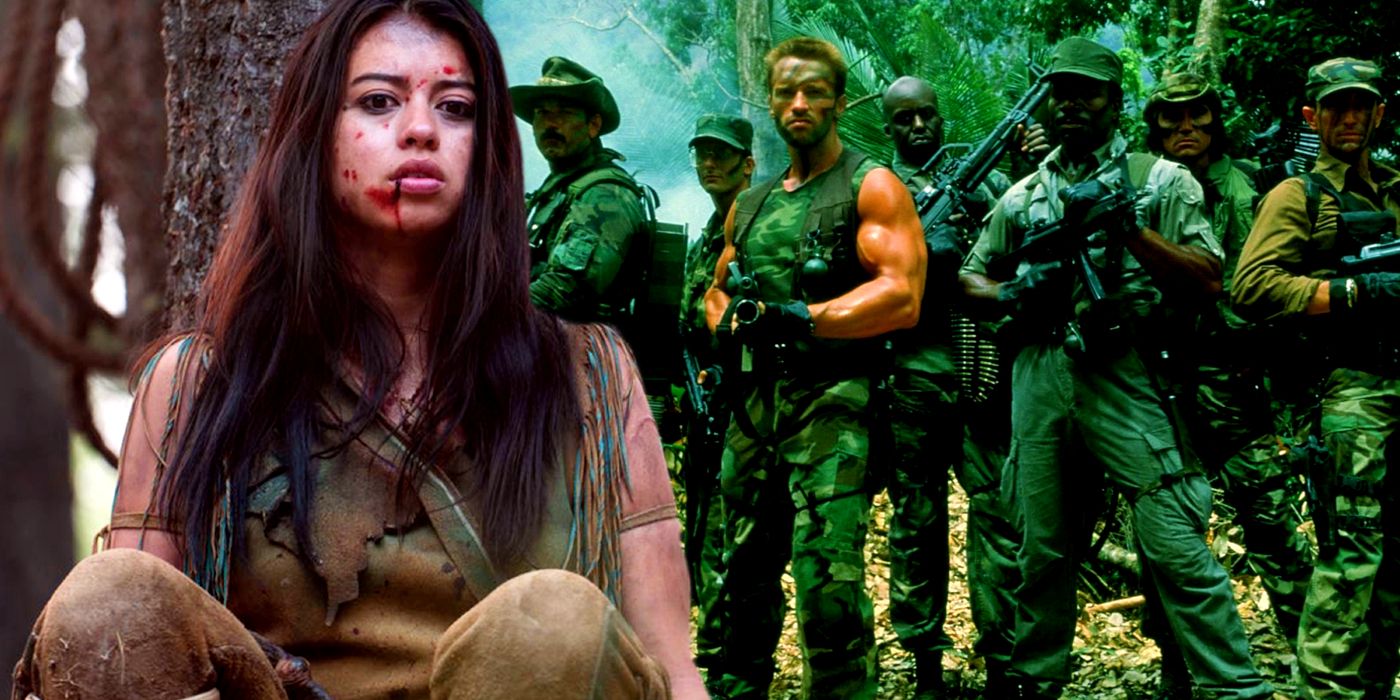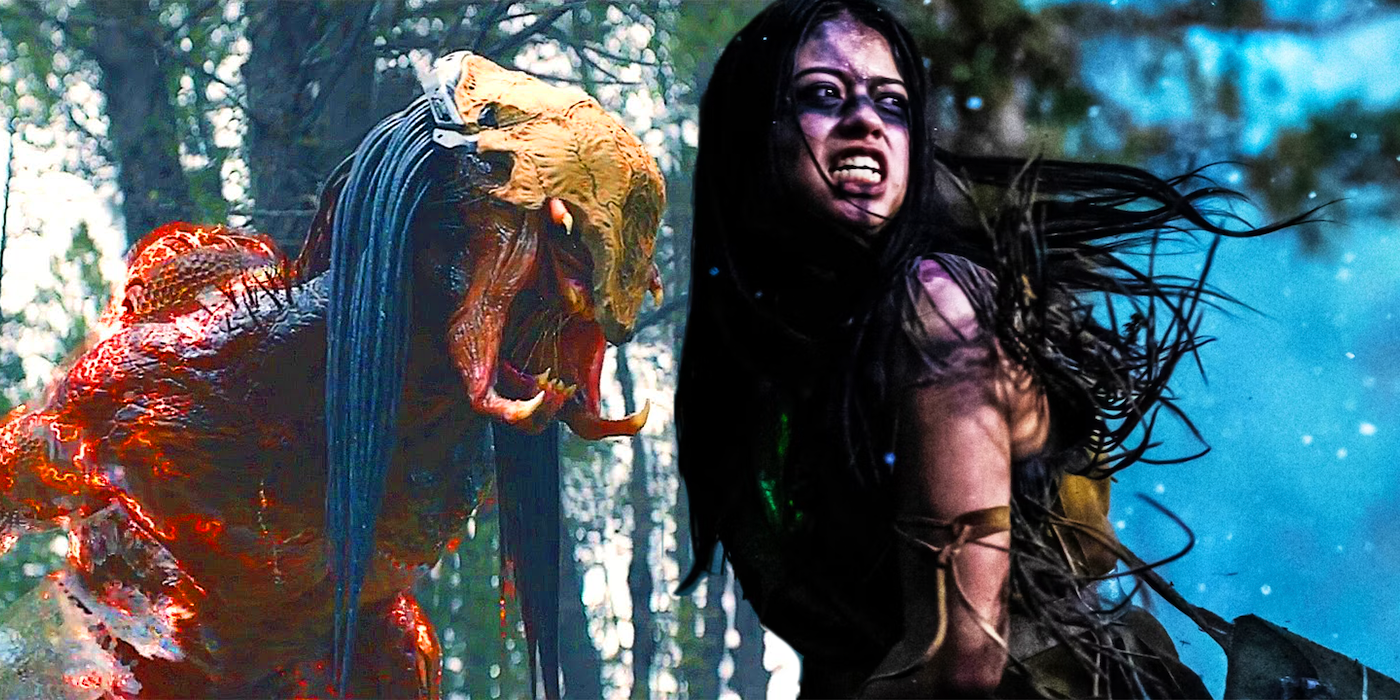Warning: Contains SPOILERS for PreyPrey is perhaps the most exciting addition to the Predator franchise since the first movie, but Dan Trachtenberg's feature film actually mocks the original film's cast in a surprising and perfect way. Compared to the brooding, muscular super-squad that makes up Predator's main players, Amber Midthunder's Naru is arguably an understated hero. However, her presence and role within Prey actually draws attention to one of the more subtle themes of the original movie, gently making fun of its protagonists in the process.
Predator's physicality is one of the film's defining features. From Arnold Schwarzenegger's Dutch to the likes of Jesse Ventura and Carl Weathers, the science-fiction thriller boasts one of the most muscle-bound casts in film history. On the surface, the machismo on display seems to be in keeping with the tone of many contemporary action movies. Yet Predator subtly subverts audience expectations, taking some of the finest physical specimens in Hollywood and systematically dismembering them at the hands of a far superior and more ruthless opponent. The group's destruction – especially after their explosive assault on a guerilla encampment in the movie's opening – highlights the inherent ridiculousness of their over-the-top masculinity, making Predator much more complex than it seems on the surface.
Prey takes this original idea even further. Compared to Dutch, Dillon, Blaine, and Billy, the Comanche hunter Naru is an extremely diminutive presence – especially when alongside the gigantic and terrifying Yautja. However, her victory perfectly demonstrates that uber-masculinity and physical prowess is never the most important attribute when going toe-to-toe with a Predator. Instead, it's her itelligence and understanding of the environment that proves to be crucial, just as it did with Dutch in 1987. The gross discrepancy between Jesse Ventura's and Amber Midthunder's size coupled with their relative Predator-fighting success therefore further highlights the themes of the original movie – 80s action stars might look impressive, but looks can be deceiving.
Prey Takes Predator's Action Tropes – And Makes Them Better
In both Predator and Prey, the protagonists only win when they abandon brawn and use their brain. Schwarzenegger demonstrated this effectively in Predator's iconic back-to-basics finale, but there's no better way to illustrate this than taking the relatively unintimidating Naru and highlighting her intelligence as the only way to overcome the Predator. This takes the themes of the original film and cranks them up a gear. While both make fun of the Hollywood archetype of physical strength winning the day, Prey proves that Dutch's original triumph had next to nothing to do with how much time he spent in the gym.
Part of what makes Prey such a successful sequel is the way in which it picks up on and enhances many of the more subtle themes present in the original. On one level, Predator works as a bloody, brutal actioner. Yet it also serves as a critique of its equally violent action movie contemporaries by having its Adonis-like cast die horribly at the hands of a more dangerous opponent. Prey builds on this theme even further, completely removing any pretense of strength being a factor. In this way, Prey not only continues the gentle scorn of the original Predator, but brings it front and center for a 21st-century audience.


